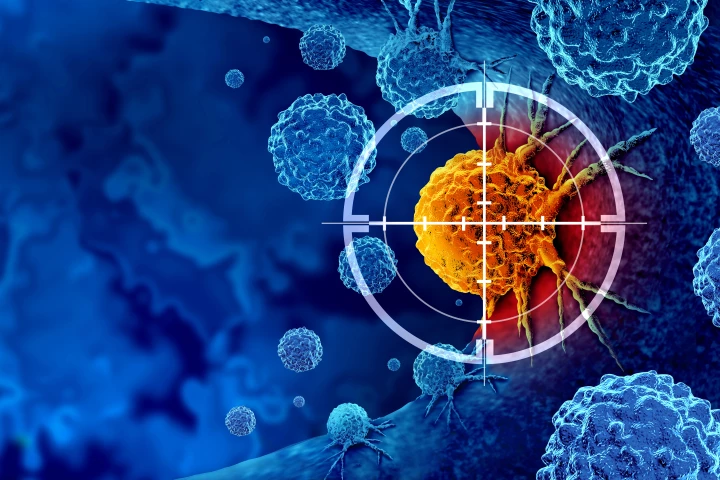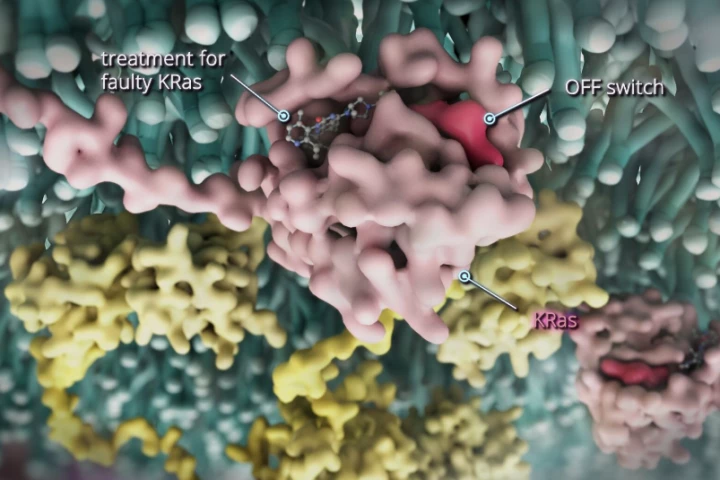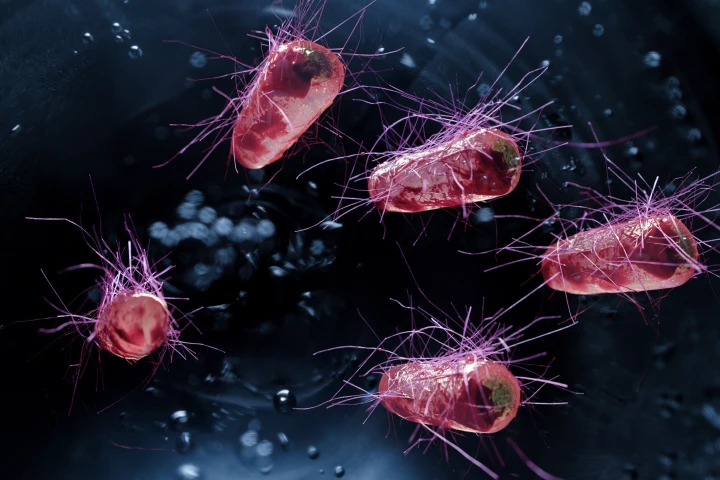Tumors
-
A promising new treatment to combat "undruggable" cancers has been green-lit for a human trial. It's hoped the novel drug will be able to stunt the growth and enable the effective treatment of cancers driven by the MYC oncogene and its MYC protein.
-
We could be on the verge of a major cancer breakthrough, with a new nanoparticle-based vaccine reportedly obliterating pancreatic cancer cells in preclinical trials. This success now takes it a step closer to a first-of-its-kind human trial.
-
Working with a line of colon cancer cells, Korean researchers figured out a way to throw a few genetic switches to cause the cells to revert back to a healthy state. The technique could have major implications in the way we approach cancer treatment.
-
Researchers have developed an AI model that can spot bits of brain tumors that surgeons may miss while removing them from patients. It can detect these remaining tissues in as little as 10 seconds, and help prevent post-procedure complications.
-
T cells are our first line of defense against cancer, but the battle tends to exhaust them. Now, scientists have found a way to give them extra “batteries” to keep them fighting longer, with promising early results in mice.
-
Shifting from giant accelerators 26 km (16 miles) across to brain surgery theaters, a particle detector first developed by physicists at CERN is being used by scientists in Germany to treat brain tumors with greater precision and safety.
-
No matter how important something is, too much of anything is bad for you. Scientists have now put that principle to work to kill cancer, with a new drug that causes calcium to build up and choke the tumor to death.
-
In what has already been tagged as a “game-changer” for cancer treatment, the potent once-a-day tablet known as divarasib has continued to impress at Phase 1b trial stage, outperforming not just current therapies but its previous trial results.
-
Typically thought of as candy, the root form of licorice has long been used in traditional Chinese medicine to treat a range of conditions. Now, a new study shows that a compound from the root is highly effective at fighting pancreatic tumor growth.
-
Certain gut bacteria have been linked to colon cancer, but now they might get a chance at redemption. Scientists have engineered “pickpocket” bacteria to detect colorectal cancer, with a 100% success rate in mouse tests.
-
Scientists have long known that the engine room of cells, the mitochondria, play an essential role in the growth of cancer. Now, they have the clearest picture yet of just how the energy organelles form complex structures within lung cancer tumors.
-
Cancer tumors are particularly adept at evading the body’s immune response, making treatment difficult. A new study has genetically engineered a common gut bacteria, enabling it to seek out and destroy cancer tumors from the inside.
Load More











